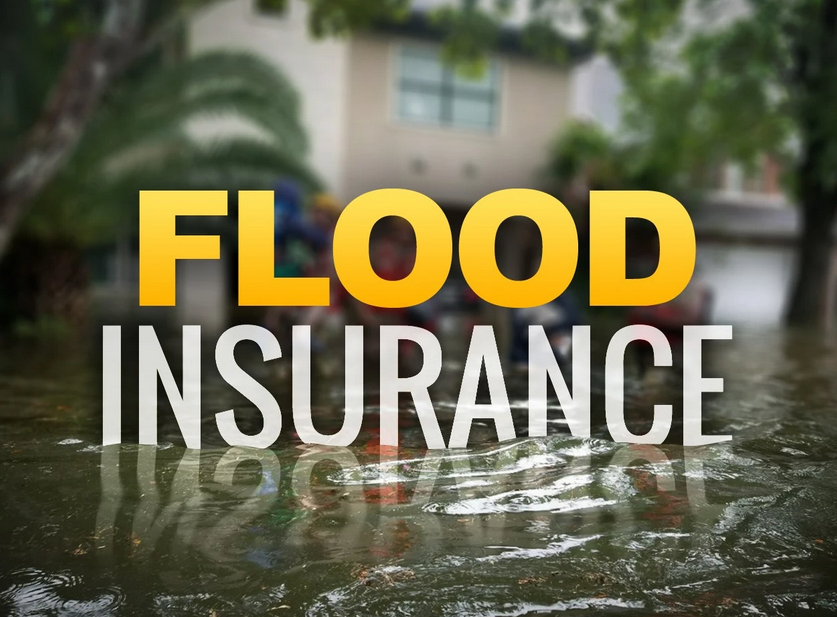flood insurance: Some homes are in areas of high risk for water damage. Other residences are located in a moderate or low risk location. Regardless of the location of your home, you might consider purchasing flood insurance to protect yourself from financial loss that can result from water damage.
Disaster Relief Limitations
If you are not insured when a catastrophic event occurs, you will have to either repair the damage yourself or wait for the state or federal government to issue an official disaster declaration. Without this official statement, no assistance will be provided. Even with an official declaration, not all disasters will result in assistance awards for residents. You may only receive an offer of financing to cover your expenses, rather than funds for rebuilding and repairs.
Benefits of flood insurance
When you purchase individual flood insurance coverage for your home, you’ll receive increased protection in the event of a disaster in the form of payment.
– In the event of a flood, you will receive a payment proportional to the water damage to your property.
– The funds you receive from your policy will not require reimbursement.
– Your policy will be continuous without the threat of non-renewal or cancellation due to repeat claims, which can occur with disaster assistance.
– Policyholders may also receive coverage for the contents of a home or business, up to $100,000 for residential policies and up to $500,000 for commercial policies.
Coverage Details
Individual policies will have different coverage features, so be sure to read the policy documentation carefully to understand the terms. For example, the nature of the flood will determine coverage. If water damage occurs due to a sewer overflow in your home, most policies will protect you from this damage only if it occurred as a result of flooding rather than some other type of problem. Learn what real estate and personal contents are included in the policy. Find out what problems are not covered by the terms of your agreement. A policy will also have deductible options to select from, which will affect premiums and claims payments.
eligible properties
A number of different types of properties are eligible for insurance coverage. You can buy coverage for a single-family or multi-family home. You can also, as a business owner, cover commercial property that you own. Renters can purchase policies for apartments, condominiums, and commercial properties to protect against losses from water damage.
Government and lender requirements
People who own property in floodplain areas may have no choice but to purchase flood insurance. Homeowners and business owners in high-risk areas with federally regulated loans often find that coverage is required under the terms of their mortgage. Small business owners who receive certain Small Business Administration loans may also find this requirement attached to their financing terms. Some communities in high-risk areas have management ordinances that require residents to carry insurance policies that protect them against loss from water damage. To be eligible for federal and state disaster assistance, residents must first be insured.
Read Also: Earthquake Insurance in California
There are some differences between insuring your property against floods and insuring it against other types of risks. First, flood insurance isn’t always carried by the same companies that offer homeowners and property insurance, because it involves different risks. You may need to call and ask your insurer if they provide this service or if they know someone who does. Second, if you live in a flood-prone area, you may need a surveyor to verify if your property is in or out of a high-risk zone before you can receive a quote. Contact your insurer today and ask how to add flood insurance protection to your property.
Pros and Cons of Flood Insurance:
Pros:
- Peace of mind: Knowing your home and belongings are financially protected in case of a flood brings valuable peace of mind.
- Financial protection: Flood damage can be devastating and quickly lead to hefty repair or rebuilding costs. Flood insurance covers these costs, preventing financial hardship.
- Required by lenders: In flood-prone areas, mortgage lenders typically require flood insurance as a condition of the loan. Obtaining flood insurance ensures you meet this requirement and avoid potential loan default.
- Contents coverage: Many flood insurance policies cover not only your home structure but also your personal belongings inside, giving you broader protection.
- Government subsidies: The National Flood Insurance Program (NFIP) offers subsidized rates for certain properties, making flood insurance more affordable in some cases.
Cons:
- Cost: Flood insurance premiums can be expensive, particularly for high-risk areas. The NFIP has seen significant rate increases in recent years, further impacting affordability.
- Out-of-pocket expenses: Flood insurance policies typically have deductibles, meaning you’ll be responsible for a portion of the repair cost before coverage kicks in.
- Limited coverage: Flood insurance doesn’t cover everything. Additional living expenses while your home is uninhabitable and basement flooding are often excluded.
- Claims process: Filing and settling claims can be a lengthy and stressful process, especially after a major flood event.
- Not mandatory everywhere: Flood insurance isn’t required in all areas, even those with some flood risk. This can lead to complacency and lack of coverage when needed.
Additional factors to consider:
- Flood risk: Assess your individual flood risk based on your property’s location and flood history. Higher risk areas will result in higher premiums.
- Policy options: Explore different flood insurance options, including both NFIP and private policies, to find the best coverage and premium for your needs.
- Flood mitigation efforts: Implementing flood mitigation measures like elevating your home or building flood barriers can lower your flood risk and potentially reduce your premium.
Ultimately, whether or not to get flood insurance is a personal decision that requires careful consideration of the pros and cons in light of your specific circumstances.
